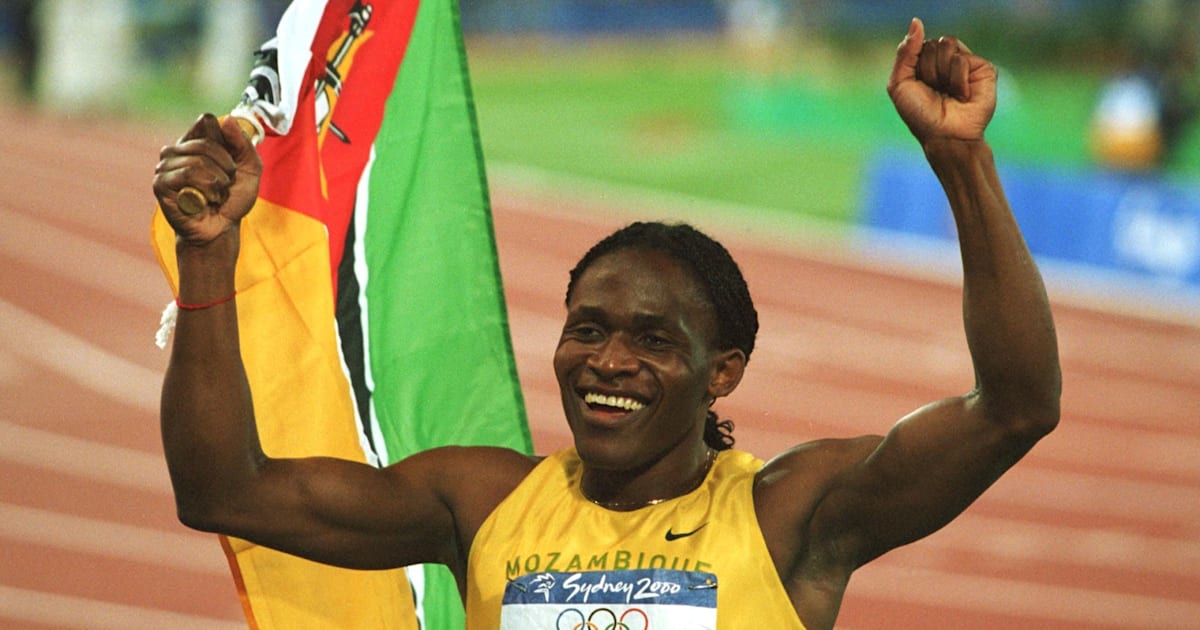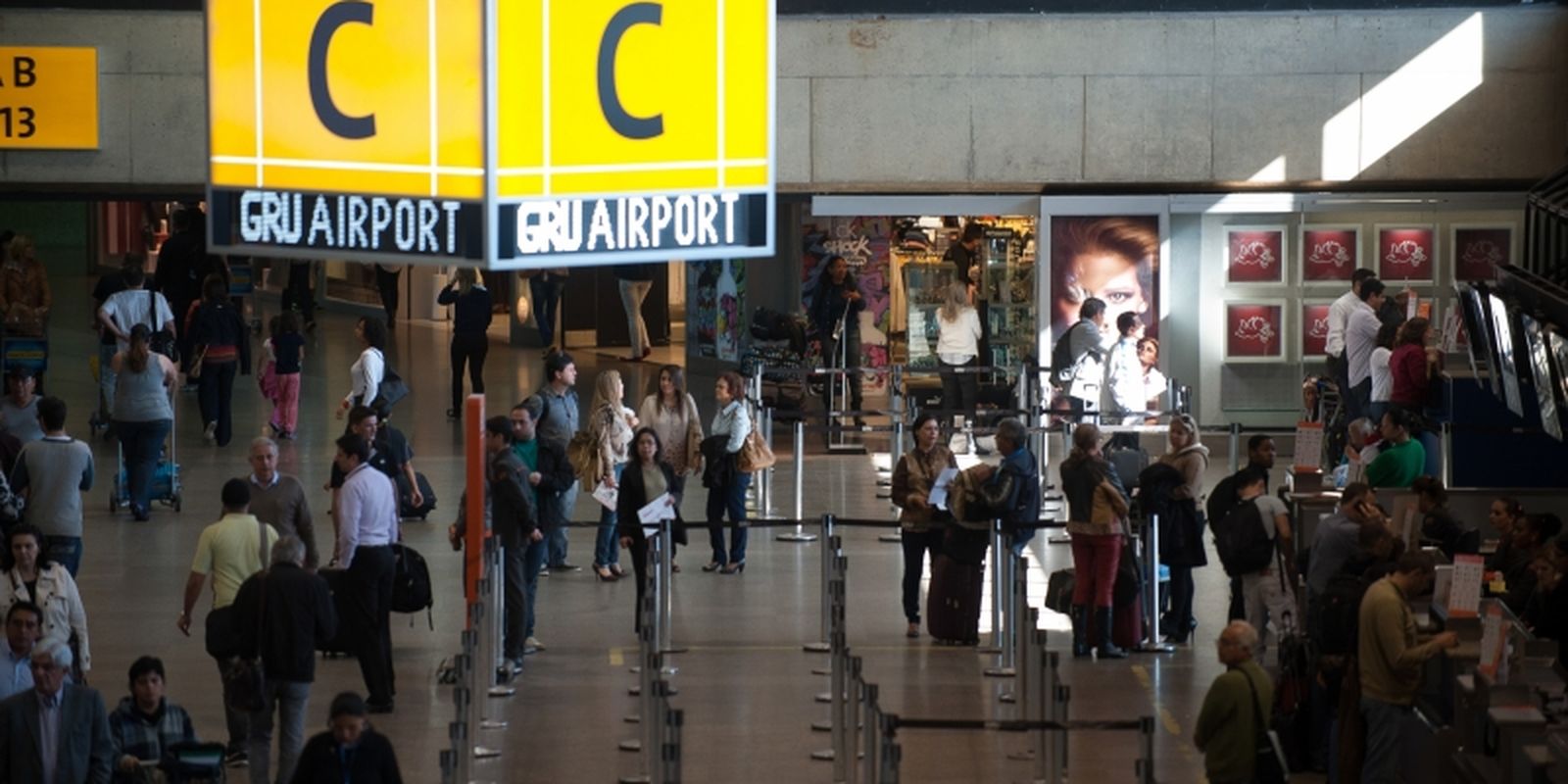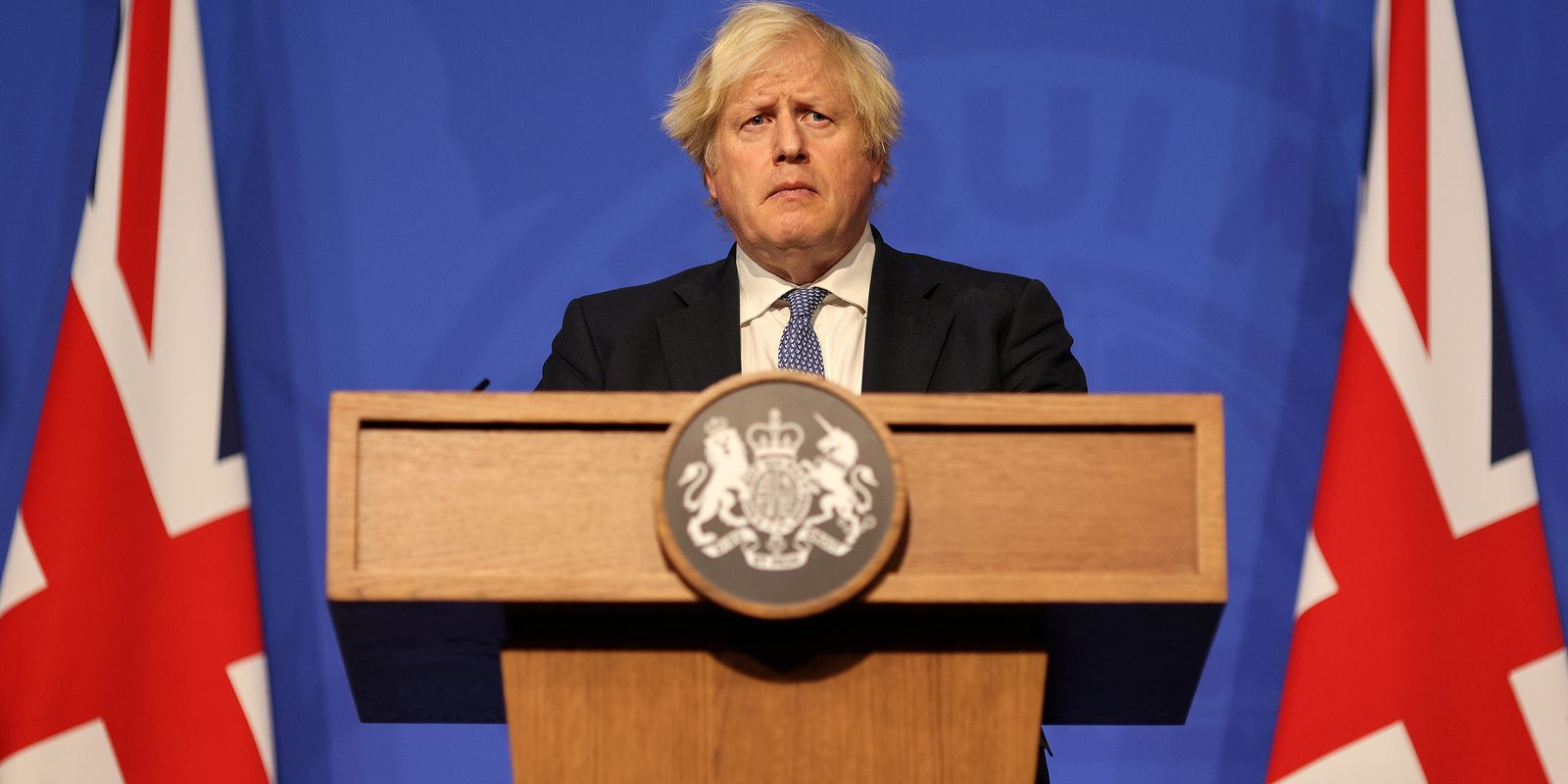Mozambique, land of Maria of Lourdes Mutola. Country on the east coast of Africa, Portuguese territory for centuries until 1975. Where Eusébio was also born, one of the greatest athletes in the world of football, the first sport of thousands of children, boys and girls Mozambicans.
It was no different for Maria Mutola, with her first kicks in newly independent Mozambique.
He played in Chamanculo, where he was born, on the humble outskirts of Maputo, a capital that was trying to rebuild itself after political sovereignty disputes and in the midst of a civil war, which would not end until the early 1990s.
Shortly after the establishment of peace, young people Mutola received the first Olympic medal for the – also young – country. But not in football, but in 800 meters athleticsin Atlanta 1996.
Four years later, the culminating moment. But in the same test, Sydney 2000Mozambique’s first at the Games.
From football in her childhood, to the nicknames of “Queen of the 800 meters” and “Expresso of Maputo”, Olympics.com invites the reader to discover the career and trajectory of Maria Mutola, who turns 50 this Thursday.
the beginnings of football
Daughter of Catarina, a domestic worker and João, a railway worker, Mutola remembers her childhood with football in Chamanculo: “I was six years old and I played with my older brother”, she declared in a interview on British BBC radio (British Broadcasting Corporation – UK Public Radio and Television Company).
He stood out in the grassroots categories, playing with the boys, until his registration with the local federation was challenged by a rival club.
However, he had been observed in a match by the local poet Jose Craveirinha, who saw Mutola’s potential for athletics. Your son, SteliOcompeted in the long jump in Moscow in 1980 and ended up being the girl’s first coach.
At first, she hesitated and thought she wouldn’t be suitable for another sport. Craveirinha then convinced her to stay in athletics by showing her tapes and photos from Los Angeles 1984.
Athletics by accident
It was the year 1988 and, at the age of 15 and even with few training opportunities, Mutola was entered to represent Mozambique at the African Athletics Championships that year, in Algeria.
“Athletics was born by accident,” he recalled in a statement to BBC radio.
An “accident” which earned him second place in the 800m, during his very first international event. As a result, he got the Seoul 1988 index a few weeks later.
In the Republic of Korea, he qualified for the final. Seventh place earned her the Olympic diploma and invitations from all over the world were not lacking to showcase the talent of the young Mozambican.
Mozambican Maria Mutola in action in the 800m at the Atlanta Olympics in 1996.
Photo: Mike Powell/AllSport
Moving to the United States
In 1990 the International Olympic Committee offered Mutola a scholarship to train and study in the United States, in the capital of athletics: Eugene, Oregon. “He hasn’t been to New York, or any other known place. Eugene is far away and very small, it was a difficult adaptation”, commented the athlete on BBC radio. “It was a big challenge for me,” he added.
Months later, in a phone call to his family, he said, in tears, that he wanted to return to Maputo. “I called my sister crying, I wanted to go back and give up, but she and my dad convinced me otherwise. I accepted the situation and from there everything started to change for the better “, he recalls in the same interview.
In 1991, formed by Margo Jennings, Mutola finished fourth at the World Cup in Tokyo, a participation that almost did not take place, for lack of uniform. A makeshift swimsuit allowed her to compete. The following year, in the second participation in the Games, fifth place in Barcelona.
The growth was staggering and the future pointed to an even brighter glow.
Once a Mozambican, always a Mozambican
However, Maria Mutola spent a lot of time in embassies and consulates in order to apply for entry visas in her passport, to compete in the most diverse countries.
His coaching staff suggested a change of nationality to reduce this bureaucracy, which consumed the athlete’s time and patience, which could be used in more training and preparation for tournaments.
He considered competing under another banner, but his father, João, stepped in. “He said if he won a medal for another country it would just be one more. But if he won it for Mozambique it would be the first,” Mutola said in an interview with UOL.
The father was right.
Mozambican Maria Mutola celebrates winning Olympic gold in the 800m at the Sydney Games in 2000.
Photo: Bongarts
1990s: from the World Cup to the Olympic medal
Mutola’s first two major achievements date back to 1993, with the world titles in the 800m in Stuttgart, Germany, and the indoor track, in Toronto, Canada. By the mid-1990s, she had already scored dozens of podiums and was the athlete to surpass in the middle distance.
She reached her third participation in the Games, in Atlanta in 1996, as world number one and everything went well. A favorite for gold, she had pneumonia a few days before the Games. He recovered in time to race and made it to the 800m final.
“I wasn’t breathing properly during the race. It was like a marathon,” he recalled in a statement to the BBC.
Finished in third place, bronze medal, the first for Mozambique in the history of the Olympic Games. “I did something very special,” he said.
Sydney 2000: Olympic gold at last
Mutola would not let the gold medal slip away a second time. He decided to prepare as much as possible for the Games in Australia. During the cycle, he maintained the podiums of the world championships. He was bronze in Athens (1997) and silver in Seville (1999). In indoor track, the title in Paris (1997) and silver in Maebashi (1999). At the Commonwealth Games, the title in Kuala Lumpur (1998).
In Sydney, at the start of the race, things did not go as the Mozambican had expected. english Kelly Holmes he had missed the podium four years earlier by hundredths, and he had nothing to lose. He attacked from the start of the race, taking the African by surprise. He had to use all his strength to pass Holmes in the final 100 yards.
“It was all or nothing. I had to do it. I was like, ‘100 yards to go…drop everything and give your life, catch me if you can,'” he told the BBC.
With 1min56s15, Maria of Lourdes Mutola gave Mozambique the first Olympic gold medal in history, the first for a Portuguese-speaking African country.
“Being Olympic champion was very special. It was Mozambique’s first gold medal. The whole country was watching. I always felt the crowd with me. I felt more complete,” Mutola said in an interview with ESPN. Brazil.
Maria Mutola of Mozambique celebrates winning gold in the 800m at the 2000 Sydney Olympics.
a winning career
Olympic champion, Mutola has two medals at the Games, including the bronze medal in Atlanta in 1996. She is a triple world champion in the 800m and seven times gold on the indoor track, the last won in Moscow in 2006. There were also two titles in the British Commonwealth, in addition to Kuala Lumpur in 1998, won in Manchester (2002).
He ended his career after the Beijing Games in 2008, in his sixth Olympic appearance, two decades after his debut in Seoul. He was a member of the Athletes’ Commission of the International Olympic Committee.
After athletics, the return to football
After his athletics career ended, he left the United States, where he lived for 17 years, and moved to Johannesburg, South Africa.
She returned to football, a sport she loves so much, and played in the local South African women’s league for the Mamelodi Sundowns for several seasons.
Additionally, she represented the Mozambique national team at the 2011 Pan-African Games, captaining and scoring goals.
Coach of Caster Semenya
In 2011, he accidentally met the South African middle-distance athlete Caster Semenya, at the airport, waiting for flights. A few weeks after this brief conversation, Semenya, a fan of Mutola since childhood, invited her to be his coach and mentor.
The following year, Semenya stood on the 800m podium at London 2012. In 2015, she ended up inheriting gold, after winner Mariya Savirova (Russia) was sanctioned for doping.
The “Lurdes Mutola Foundation”: an opportunity for Mozambican youth
Mutola was already well known in the sports world and the Olympic title in 2000 gave her even more projection.
In 2001, he created the “Lurdes Mutola Foundation”, which offers educational, sports and cultural projects to thousands of young Mozambicans. During the first five years of the entity’s existence, 30 trained athletes participated in international competitions.
“All the children of Mozambique need to have a Craveirinha (referring to the one who discovered it for athletics) in their life. I want them to know that, as I realized at the beginning, the combination of sport and education is the key to success”, challenged by UNESCO (United Nations Educational, Scientific and Cultural Organization).
For her, the Foundation is a way to pass on everything she has received. “It is important to pass on what I have learned to young Mozambicans. Not only in sports and athletics, to show the light and the right path,” he commented to Vatican Radio.
In your Foundation’s creation manifesto, Mutola refers to the purpose of helping, as one of the pillars of something even greater for his country, Mozambique: “What we call the patriotic feeling arises from mutual support, from a on the idea that we are one big family sheltered under the same flag”.
As a good African, she puts into practice an old proverb of the continent: “Who learns, teaches”.

“Freelance communicator. Hardcore web practitioner. Entrepreneur. Total student. Beer ninja.”







